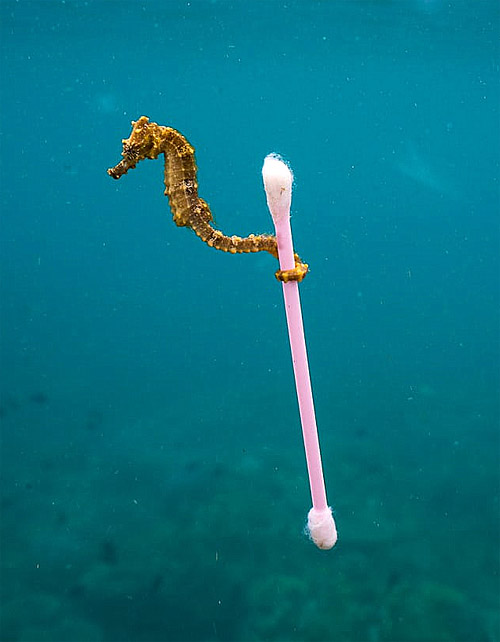
Plastic Pollution
Plastic pollution affects at least 700 marine species, and kills over 100 million marine animals, including mammals, each year.
Between 5 million and 14 million tons of plastic is swept into the oceans every year. Some of that debris washes up on beaches, even on the world’s most isolated islands. About 5 trillion pieces currently float in surface waters, mostly in the form of tiny, easy-to-swallow fragments that have ended up in the gut of albatrosses, sea turtles, plankton, fish, and whales.
As plastics break down, a cocktail of chemicals leach out and the plastic becomes like a sponge, absorbing other ocean pollutants such as persistent organic pollutants (POP's). Studies have shown that plastic can adsorb concentrations of toxic pollutants almost 1 million times greater than their concentration in sea water. Perhaps unsurprisingly, plastic contamination is slowly killing the human race.
Plastic ultimately enters the entire ocean food chain from plankton through to fish and whales. Plastic can also causes injury and death to whales, dolphins and porpoises through blockage to their gastrointestinal tract.













